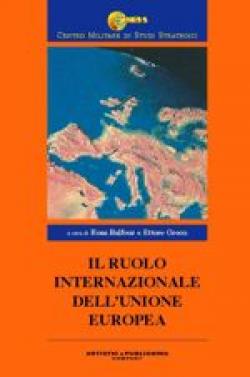Il ruolo internazionale dell'Unione europea

In recent years, the international commitments of the European Union have grown considerably, above all, in sectors such as commerce, aid given to the development and civil reconstruction of countries devastated by conflicts. On the whole however, the international role of the European Union is still weak, well under the expectations of the public opinion. Not only does it not yet have the adequate potential and resources to carry out large scale military action, but often, owing to the weakness of its institutional means, and divergences among Member States, it is not capable of carrying out coherent and effective diplomatic action. Several crucial questions regarding the identity of the European Union itself as international protagonist remain open. Is it auspicable that the Union, which today, is principally a civil and economic power, also become a military power? Will the European States elaborate a real common strategy of foreign policy? Will they be able to adopt new, common organs and instruments capable of guaranteeing a more efficient European presence in principal international affairs? Is it realistic to presume that the present reticence by governments, to transfer decision-making power in the foreign policy sector to Brussels, will be overcome? In this volume, Italian and foreign experts have contributed in attempting to answer these and other questions regarding the future of European foreign policies. The authors have analysed the foreign activity of the European Union in its various forms, highlighting the interconnections, the strong and weak points and the potential for development. Not only are the institutional and decision-making mechanisms of the Common Foreign and Security Policy (CFSP) examined, but also the relationship between the last mentioned and other European Union foreign policies - in particular those that come within the pillar of the Community. Moreover, the impact that policies on justice and internal affairs may have outside the Union, are also evaluated. A section of this work is then dedicated to examining several, specific foreign policies of the Union - its enlargement, initiatives in the Balkans and the Mediterranean, relations with the USA - with a particular analysis of the concrete results that have been obtained and the performance of the various organs of the Union involved. Furthermore, in the introductory and concluding chapters of this volume, the two editors, summarising the results of the research, make some considerations regarding the identity of the Union as international protagonist and the future evolution of European foreign policy.
Volume prepared by the Centro studi di politica internazionale (CeSPI) and the Istituto Affari Internazionali (IAI) on behalf of the Centro militare di studi strategici (CeMiSS). Published also in English: The International Role of the European Union, Roma, Centro militare di studi strategici, May 2003, 308 p. (Collana del Centro Militare di Studi Strategici ; 118)
Prefazione, p. 7-8
Introduzione
Il ruolo internazionale dell'Unione europea, di Rosa Balfour, p. 9- 30
Parte prime. La dimensione istituzionale della Pesc: gli attori e il processo decisionale
1. I meccanismi decisionali della Pesc e della Pesd, di Franco Algieri, p. 33- 53
2. Il ruolo dell'Alto rappresentante per la Pesc e la Cellula di pianificazione politica, di Raffaella Circelli, p. 55-90
Parte seconda. Stati membri, pilastri e Policy Fields
3. Pesc/Pesd: coerenza, flessibilità, efficacia, di Antonio Missiroli, p. 93-122
4. La fortezza asimmetrica: il problema dei rapporti tra politiche di sicurezza interna ed esterna nell'Unione europea, di Ferruccio Pastore, p. 123-148
5. La moneta unica al servizio della politica estera, di Daniel Gros, p. 149-172
6. Struttura, interesse nazionale e lo sviluppo del processo Pesc-Pesd, di Julian Lindley-French, p. 173-196
Parte terza. La politica estera dell'Unione alla prova
7. L'allargamento all'Europa centrale e orientale come politica estera e di sicurezza, di Barbara Lippert, p. 199-228
8. Il ruolo dell'UE nel Mediterraneo e il futuro del Partenariato, di Roberto Aliboni, p. 229- 246
9. Il gap tra allargamento e politica estera, di Nathalie Tocci, p. 247-277
10. La politica estera dell'Unione europea alla prova dei Balcani. Capacità e politiche nella risposta al conflitto armato del 2001 in Macedonia (Fyrom), di Mario Zucconi, p. 279-298
11. L'UE e i rapporti transatlantici: l'evoluzione della Pesc/Pesd nell'era dell'euro, di Roberto Menotti, p. 299-345
Conclusioni
Prospettive di sviluppo e riforma della politica estera dell'Unione, di Ettore Greco, p. 347-360
Abbreviazioni, p. 361-362
Topic
Tag
Related content
-
Publication19/08/2015
The International Role of the European Union
leggi tutto -
Ricerca11/01/2015
La politica estera e di sicurezza europea: sviluppi politici e istituzionali e il ruolo dell'Italia
leggi tutto


